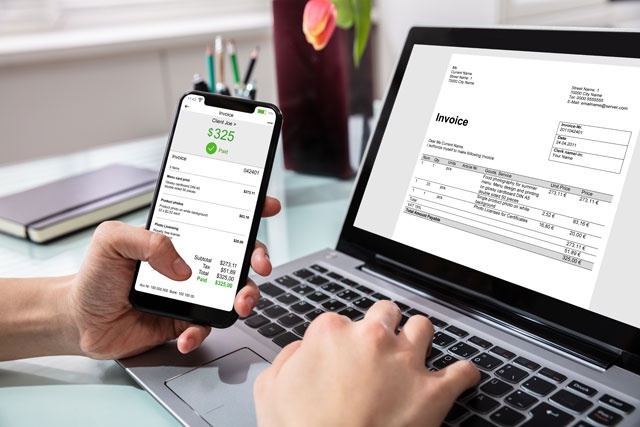Using the Web
Consider building your own website! You can have a family website that contains photos and information about your family, or a business website that helps you sell the gadget you invented. You can establish a website that is focused on frogs or pears, or Aunt Mary's needlepoint -- just about anything that interests you and that you want to share, sell, promote or flaunt.
If you Google� the words "make a website" you will be astonished by the number of companies that will help you build a site, host it and give you a webpage - and some for free! But, don't be confused about this - free only goes so far. There are conditions in most cases, and there is almost never a truly free website. But, before you get started, it is a good idea to know what is involved, and plan a little for the creation of your very own web site and for owning your own domain name.
Hypertext Markup Language (HTML) is the most commonly used authoring language for creating websites. It is relatively easy to learn and far less complicated than learning other programming languages. It is based on embedding tags and attributeswithin your page. That may sound confusing, but it is basically quite simple.
Before a web-page becomes a web page, it is put together just like a regular document, EXCEPT that it has certain codes embedded in it that tell the document how it is going to look when it's online.
These codes, or tags, are enclosed in the carrot-shaped angled brackets, (carrot-marks) that you can see on your keyboard that look like < and >, usually the upper case characters on your comma and period keys.
Writing HTML can be fun. For example, if you are about to write some text that you want to appear online as bold, you would type in the tag that looks like this: <bold> . and from that point on, the text will appear bold when it's online. At the point where you want the bold formatting to end, you would simply type </bold> . inserting a slash in the tag.
In this way you can create an entire web page, using graphics, different colors and sizes of font, hyperlinks, and even animation. Of course there are lots of tags to learn, and a range of colors and tools to choose from. If this interests you, take an online course in HTML, and learn how easy it is to create your own web pages - when you know how.
If you own a copy of software such as Microsoft's "Frontpage�," you can easily create professional, custom webpages with lots of help and instruction at your fingertips. However, it is still quite helpful to know HTML when using these packages.
Tip: If you want to see what a web page
looks like in its raw HTML form, go to your VIEW
menu and click on "SOURCE." This option lets you
see everything that went into making that
web page. It's fascinating - try it!
If you are not particularly interested in learning HTML, but still want to build a website, consider visiting a site that offers "site builder" tools. These authoring tools allow you to type in regular format, and create your website just like you would create any document, and it embeds the tags for you, giving you choices of all kinds. Obviously, this is a much simpler way to build a website, and unless you are wanting to do something extremely fancy, these site builders are the way to go. Just Google�website builder, and see all the choices!
So, HTML is not a complicated programming language, but is fairly easy to learn! With practice, you can build your own website and make it however you want it. But, you can also find software that will build your web pages for you - look around!!
If the software you have used to create your website does not offer this service, search for "obtain domain name," and you will find hundreds of sites offering to establish and register a domain name for you.
You will be taken to a screen that allows you to try out your domain name to see if it has already been claimed. Since there are millions of websites now on the Internet, you may need to be very creative to find one that is original and not already spoken for!
Be prepared to pay a fee for the use of your domain name, and also be prepared to pay each year to maintain it. Some cost less than others. Also, be aware that you cannot violate copyright laws with your domain name. An example is - you cannot use domain names like www.proctor&gamblegames.com, or colsanderskentuckyfriedblues.com, or any other domain name that would infringe on someone else's copyright or trademark. Nor can you use a double set of golden arches as your logo - you get the idea!
It is better not to use extras in your domain name, such as a hyphen, if you can avoid it. Websites with URLs such as www.rubber-duck-place.comare a little more difficult for people to remember and type in, than www.rubberducky.com. However, if you are forced to use a hyphen, don't panic. Your site will still be searchable on the web. Keep thinking and trying out domain names until you come up with one that is most suited to your needs or products.
Remember that a website is made up of web pages, so technically, what you are creating is web pages that each have a specific purposes and are linked to one another by hyperlinks.
What kind of site do you want? Remember that if your website is going to be a place to purchase a product of any kind, you must choose a .com domain name. If you want to set up an organization to place stray kittens or share gardening tips, you might want to consider an .org or .net site.
Most websites have an email link so that people can send you a message, an order or other communication. Commercial sites often include a "shopping cart" and/or "storefront" that allow your visitors to feel like they are shopping for your products. It also allows them an easy way to check out and pay you. Most pre-packaged site builders include these features, and nowadays often contain a blogging feature and other conveniences that will help you make the best use of your website.
When planning your website, consider the following components before you start:
- Domain name
- Logo
- Content - text and photos about your subject
- Colors - background and text
- Design scheme - sketch out your pages
- Contact Us feature and Email capture
- About Us page
- Testimonials about what you are selling, if applicable
- Samples/photos
- Copyright information
- Links to other sites
- Secure purchasing function and shopping cart
- Any free links, information or tools you can provide relative to your subject
So, planning ahead for your website is essential. Use search engines, books and instructional materials to make as many decisions as possible before you begin to build your website. Look at sites that are similar to your subject areas and get ideas (remembering to respect copyright and plagiarism laws and rules).
When you use another person's words, you must always provide the name of the owner of the material and where you got the information. If you do not do this, you will be considered to have plagiarized the work, and will be in violation of copyright laws, whether the copyright has been registered by the creator or not. In the world of writing, there are different formats for doing this.
When you use an image or term that has been created by someone else, you may be infringing on trademark rights. Maybe you do not believe these rules apply to you, especially if you are just a regular person trying to set up a modest website. However, think twice about this. You can be sued for infringing on others' rights, not to mention the fact that you can be forced to remove the offending material.
There are certain texts, images and music that are considered to be in the "public domain," meaning that, due to age, familiarity or other circumstances, they simply belong to everyone.
The following information, borrowed from http://cyfair.lonestar.edu, will provides you with a basic reference to consult while you are setting up a website and will help prevent you from breaking rules as you create your masterpiece:
Read the above boxes carefully, as all of these rules pertain to all of us - no one is exempt.
It's not that the Internet itself is not a free forum, but our government sees using the copyrighted property of others as a crime. Until that changes, don't do it.
Now, other music download sites have opened up that have made legal arrangements with music companies to pay royalties. You can now download music for a small fee - which eliminates infringement on the rights of the musicians and artists.
Remember, these laws were made to protect all of us. If you had a brilliant idea and turned it into reality, you would not want to have it stolen and used by others.
*Glossary:
In certain cases, national governments have imposed certain restrictions on the content of the Internet for cultural and political purposes, but generally speaking, it is a free network where freedom of speech and expression reigns supreme.
There are many established organizations that play a role in maintaining the integrity of the Internet, both in terms of technology and the guidelines and operating principles.
The InterNIC, or Network Information Center, is a group of registrars who maintain all the domains that are registered on the Internet. They are part of our country's department of commerce, and they are responsible for all of the domain names that are registered.
InterNIC is the head honcho when it comes to filing complaints about domain name or trademark theft, viruses or other problems. Of course, these kinds of complaints should first be made to your ISP, but ultimately, InterNIC is the governing body for Internet problems.
Again, this is not an agency that profits from or governs the Internet, but one that voluntarily oversees the general standards of how the Internet is used. Groups that determine and advise on standards for the Internet's infrastructure are members of this society.
*Vocabulary
|
InterNic |
Internet Network Information Center - A department of commerce organization consisting of registrars who maintain all the domains that are registered on the Internet. |
|
ISOC |
Internet Society - a non-profit organization dedicated to monitor, improve and keep tabs on Internet Standards. |
|
ICANN |
Internet Corporation for Assigned Names and Numbers - an organization that accredits Registrars who sell domain names to ISPs. |
|
*Unless otherwise noted, all glossary definitions in this article are obtained from www.webopedia.com, or How The Internet Works, by Preston Gralla, Que Publishing, 2007. |
|






























